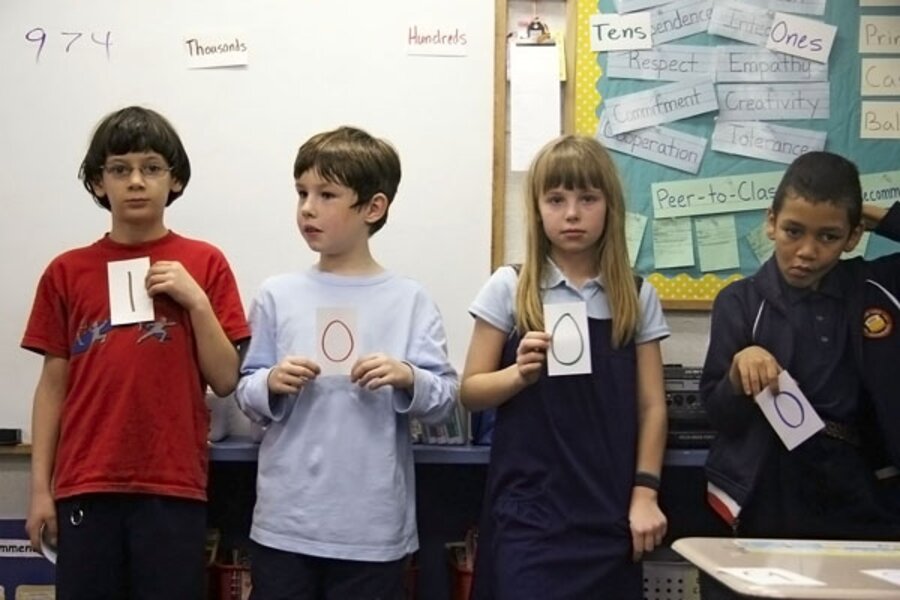Breeding a smarter student – sooner – by changing expectations
Loading...
Every year, says Lynn Randolph, kids are expected to know more when they're younger. One of the contributing factors to schools' failure under No Child Left Behind - an issue we explore in today's article - is that of changing expectations from generation to generation.
"They're doing variables in second grade; we used to do them in algebra. We did multiplication and division in fifth grade; they need them in third," says Lynn, an ICS math teacher and testing coordinator until last month, when she became the school's development director. "They're seven years old - they don't have to know it all today."
Under NCLB, a public school's teaching has to line up with its state's performance standards - in Georgia's case, a rigorous new curriculum that aims to make kids competitive in a global economy. "And it's not that they're at odds with what you'd want your child to know," Lynn says. "But they've fallen into the trap of thinking, "
The problem, teachers say, is that elementary schoolers seem to be maturing intellectually and emotionally about as fast as they always have. Lynn and other ICS teachers see a disconnect between kids' development and the material they're supposed to be covering - especially where they're learning in a second or third language, as our series will explore tomorrow. It leaves Lynn with some nostalgia for school as she experienced it, more than a generation ago. "There was
more taking your time," she says - but when you learned something, you dug in until you really knew it.
Especially in a climate of shifting expectations, ICS's former testing coordinator sees overemphasis on high-stakes standardized testing - a divisive issue as President Obama considers his first education reforms - as a real
danger: for students, teachers, and schools. She's especially against plans in Georgia to reward principals and teachers financially for high student scores.
Human nature being what it is, she says, that's a terrible idea. Not that most teachers would cheat. But why create an incentive to do so by paying people to increase their scores? "That's not hard to do," she jokes, "just give me an eraser and an afternoon."





